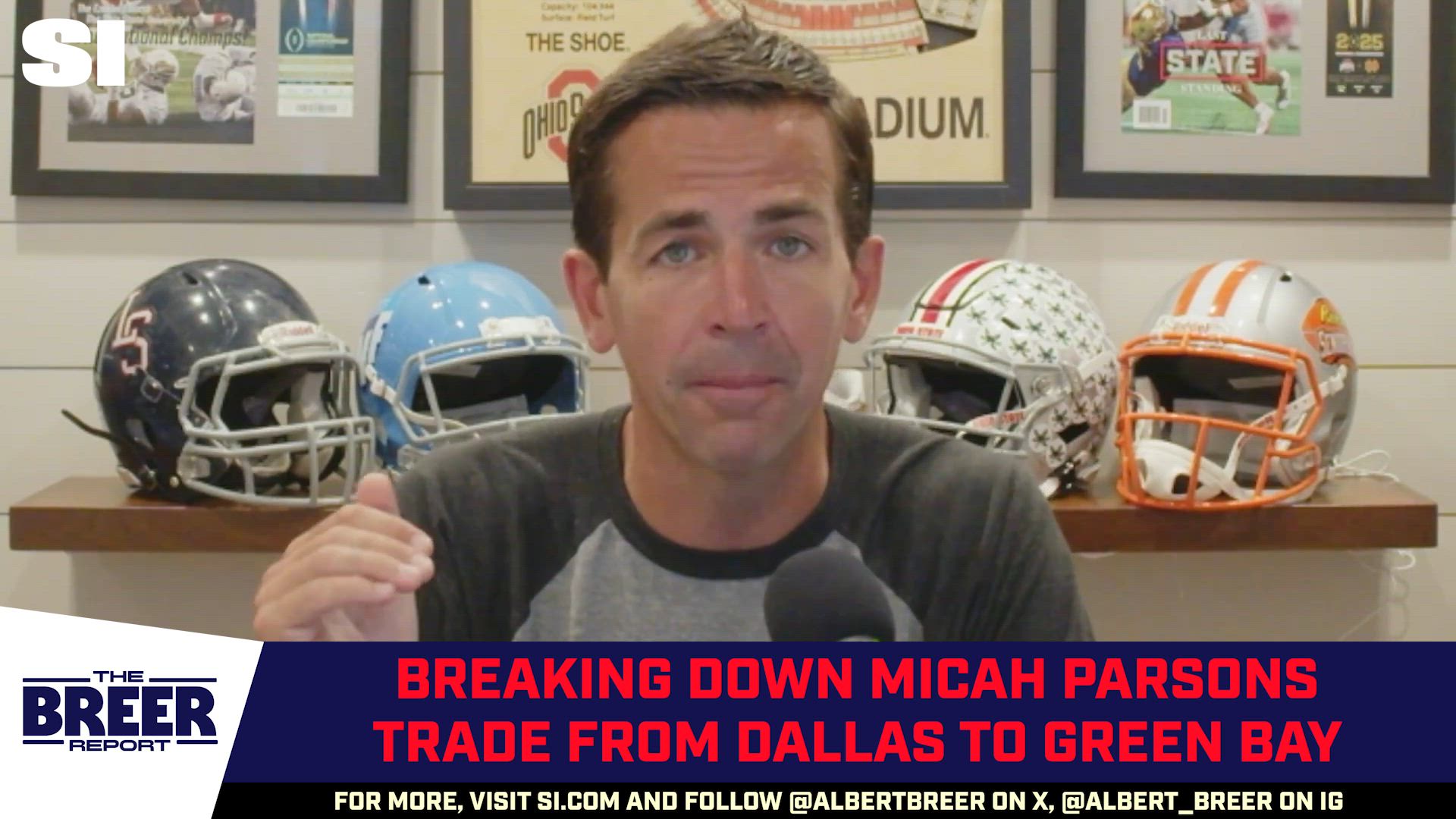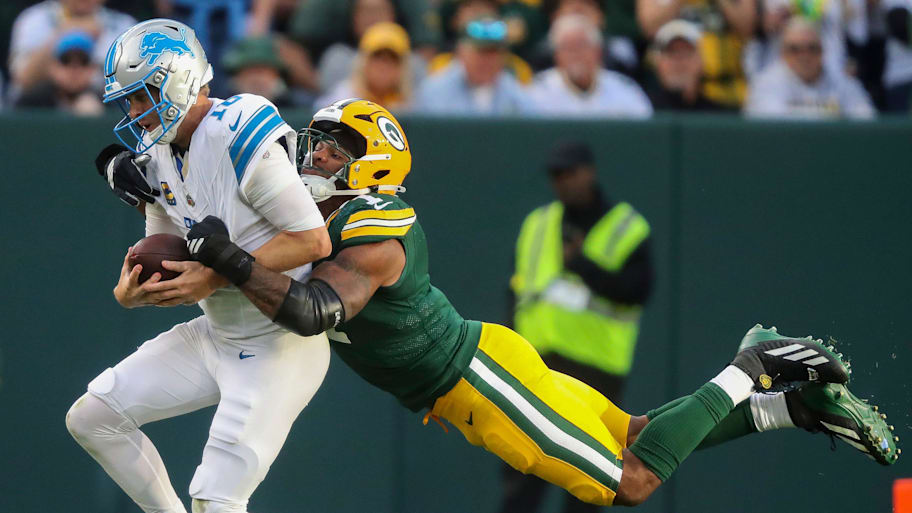
In just 29 snaps with the Packers on Sunday, a banged-up Micah Parsons forced an interception with a pressure, logged a demoralizing, door-slamming effort sack and drew enough double teams to shred what has been one of the best offensive lines in the NFL, generating free rushers from a team that struggled to penetrate last season. The Packers pummeled a Lions team that won 15 games last season and previously ruled the NFC North, catapulting themselves into the next few weeks of the season with a new lease on life after an otherwise middling preseason.
Saying just this alone undermines the nuance: Nearly every moment Parsons was on the field, he was causing a logistical nightmare for an elite NFL offense, whether or not that clip was deemed worthy of its own YouTube short.
Without Parsons on Thursday night, the Cowboys’ defensive line played its ever-loving hearts out, holding Saquon Barkley to 60 rushing yards as they came up just short of beating the defending Super Bowl champions.
Over the past two weeks, much of the effort from Fort Jerry and the Cowboys has been to excuse the trade and make it seem like anything but malpractice leading to destructive hubris. You can tell when Cris Collinsworth casually mentioned during the Eagles-Cowboys broadcast how it’s a bad idea to have three players—in this case, Parsons, Dak Prescott and CeeDee Lamb—take up more than 50% of your salary cap, without noting the fact that Jones is the one who decides to wait until zero hour to make those deals. It’s cost him millions in the process, while another team in his own division puts on a financial clinic on how to house a dozen high-priced superstars at once.
You can tell when defenders of the Cowboys (are there any unpaid ones remaining?) mention that keeping Parsons would have been done at the expense of defending the run game, when Dallas had already—it seems—fixed one of the league’s worst running defenses by importing a new coaching staff and signing veteran Solomon Thomas alongside promising rookie Jay Toia. And, by the way, keeping Parsons reduces double teams and improves the run defense, as we saw in Green Bay with the Packers holding one of the most efficient rushing offenses in the league to 2.1 yards per carry.
You can tell when there starts to be these little tiny off-the-record whispers about Parsons being a character concern—rich coming from those at the top in Dallas, by the way—when all Parsons has done since is get an epidural jacked into his backside in order to show up with almost no practice for his team in the season opener and chase down Jared Goff at the end of a non-contest for the absolute hell of it.
Hopefully, now your own personal skies have cleared and Occam’s razor has revealed itself yet again. Good teams invest in good players, pay them when they’re supposed to and keep them happy. Bad teams care more about the optics of a decision they were always going to make anyway. Bad teams care more about hierarchy, status and precedent—the nebulous and superfluous that only appeal to a naked emperor without a lick of common sense and an appetite for the appearance of power. When bad teams want to let go of good players, good teams call the bad teams and take those players off their hands.
Elite players can change the fortune of a season, which is why we should cease galaxy-braining ourselves into why this Parsons trade will one day change the fortunes of the Cowboys for the better. We cannot say with any certainty that Parsons was the reason that Green Bay walloped the Lions, but we can say with confidence that the emotional uplift a team gets from management believing they are one player away from being this good creates a tangible on-field impact.
The same can be said in reverse for a Cowboys team that lost Thursday to Jalen Hurts, who, as it happens, had the second-longest snap-to-throw time of any quarterback in the NFL this week, heading into Sunday Night Football.
A generational pass rusher may have been of some use there. Dallas knew it, of course, and will spend the better part of this season trying to convince you otherwise. The Cowboys will try to make due when they could have experienced a bit of the flourishing we saw from Green Bay this weekend.
More NFL on Sports Illustrated:
This article was originally published on www.si.com as Packers Already Felt Micah Parsons’s Impact in Week 1.
